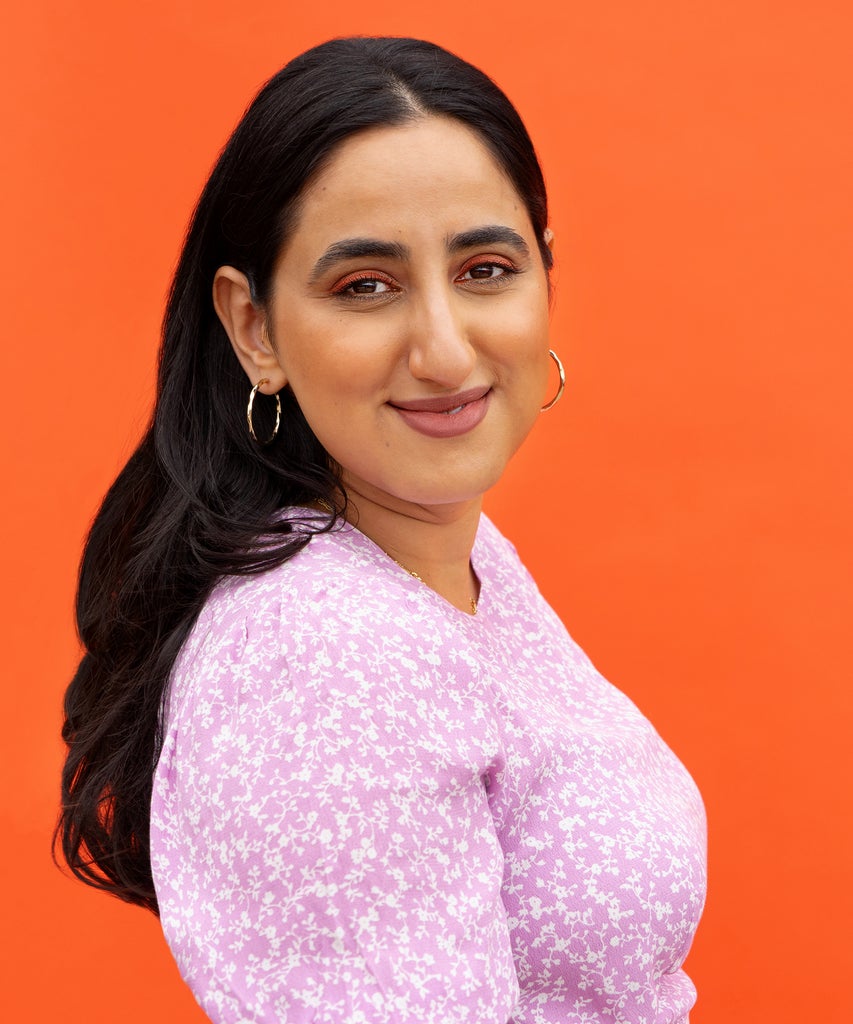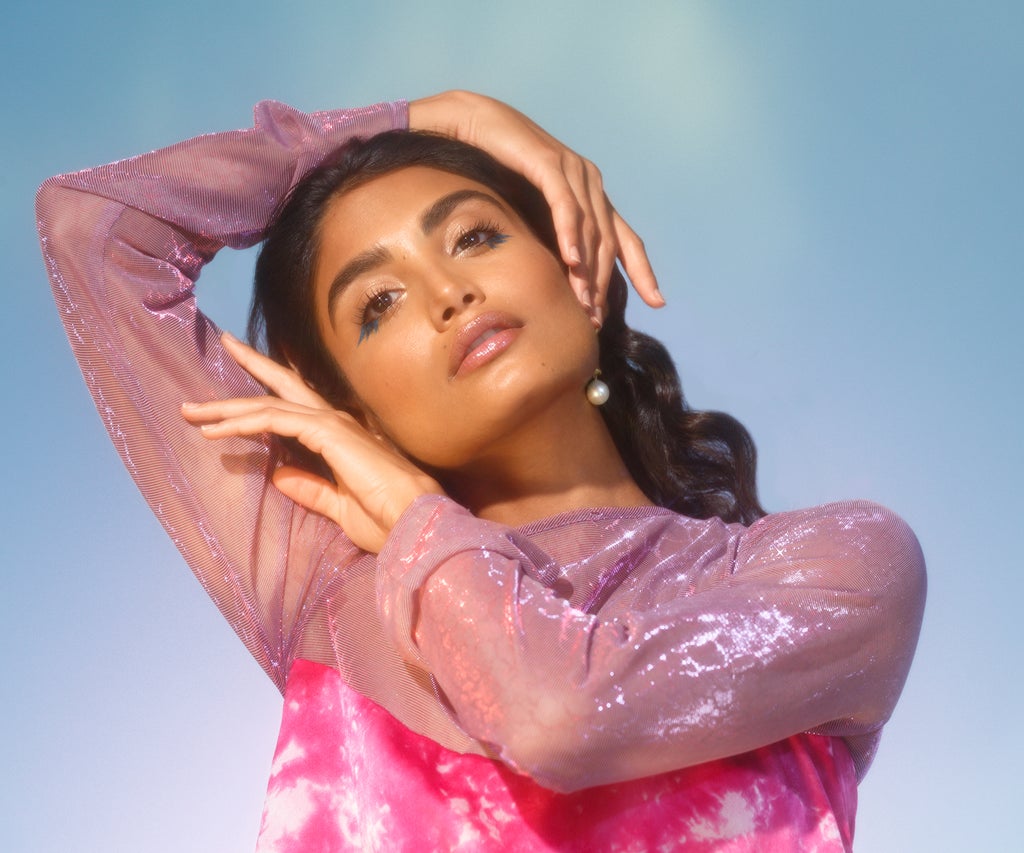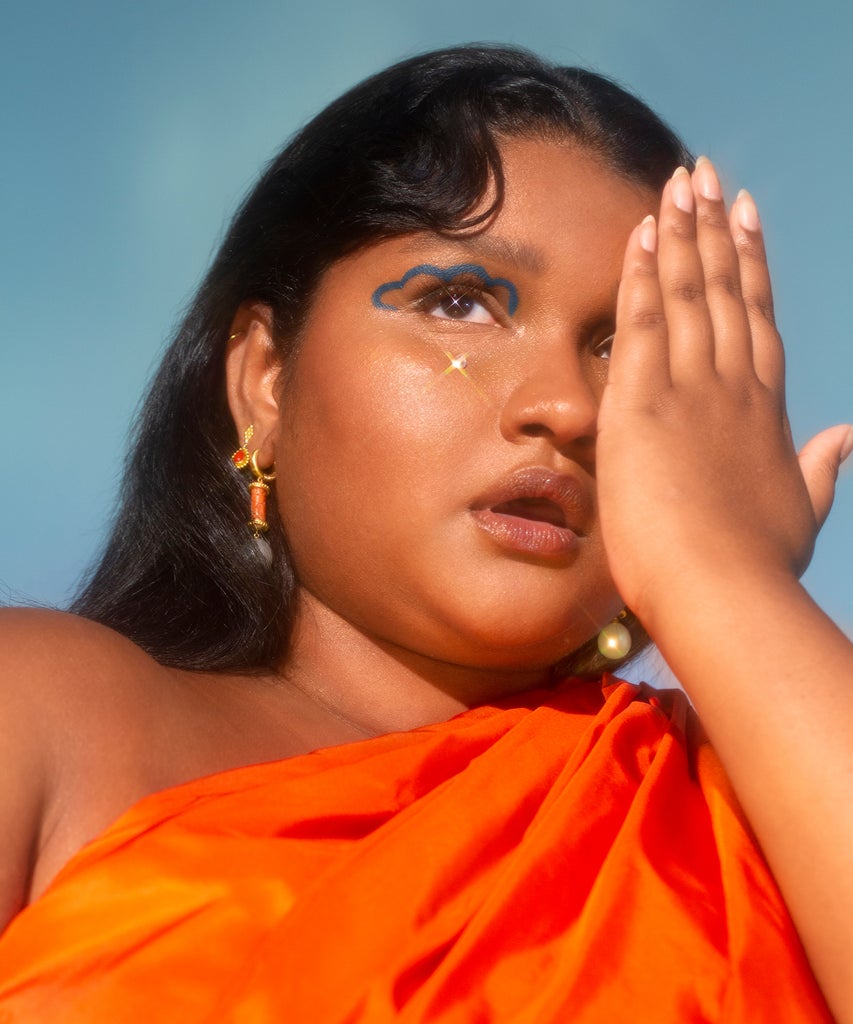
Growing up in India, Priyanka Ganjoo didn’t have the most amicable relationship with beauty. “There was a lot of judgment around using makeup,” Ganjoo says. “People would say that you’re wearing it to attract men, or to have a lighter complexion.” The stigma kept Ganjoo from even experimenting with cosmetics until she was 22, at which point she used makeup to cover perceived “imperfections.” “I got tired of explaining that my dark circles were genetic, not because I was exhausted,” Ganjoo says, “so I was using makeup to cover up what others saw as a flaw, but was just a natural feature.”
Those negative early associations with makeup didn’t erase Ganjoo’s fascination with it — quite the opposite, in fact. She took a job at Esteé Lauder, where she discovered that makeup should be fun, not regulatory. Ganjoo began to see makeup as a tool of expression versus one for validation or concealing. She also noticed that the industry was limited in serving women of colour, and specifically women of South Asian descent. “My friends and family would ask me for product recommendations, and I struggled to point them to brands designed and centred around South Asian consumers,” she says. “There’s more than one billion of us globally, yet we weren’t centred or celebrated in the beauty conversation.”
That realisation sparked an aha! moment that motivated Ganjoo to create the brand she craved and that she felt the beauty world was missing: a safe space for South Asian people to feel celebrated. After three years of extensive research, she officially began working on Kulfi Beauty, which launched to much fanfare this month.

“I spoke to many women on social media to gather information, and it became clear to me quickly that there was a big gap in the complexion category,” Ganjoo says, “but I also felt like there were other categories that were missing.” She saw an opportunity to serve and represent South Asian women in the eye makeup department. “Kajal is a cultural staple in many South Asian households, and it’s used across genders and ages,” Ganjoo says. “No one has ever created a kajal that was for our generation, or that spoke to us authentically as consumers.”
The Kulfi team’s very first release is Underlined, a five-piece kajal eyeliner set that includes a range of playful colors like turquoise blue and terracotta orange. (Each pencil can be purchased individually for $20 (£17); the full set is $85 (£65).) With a creamy, malleable texture, you can opt for graphic lines or smudge them on lids or into your waterline. Once the pencils are dried, they stay put for the entire day without feathering.
Ganjoo’s Indian culture is prevalent in every aspect of the Underlined set, and in the Kulfi Beauty brand DNA. “I wanted this brand to feel like a beauty playground, so I went back to moments where I felt carefree growing up in Delhi,” she says. “It took me back to this South Asian treat called Kulfi that I enjoyed with friends growing up. That’s where our brand name came from.”
“It’s important to recognise that South Asian women are not a monolith.”
Priyanka Ganjoo
Kulfi Beauty’s debut campaign, called Nazar No More, isn’t just visually stunning: The concept also holds cultural significance. “When we are born or have a major event, my parents will put some black kajal on me to protect me from the evil eye, which we call Nazar,” Ganjoo says. “In our culture, women are told not to stand out or speak up because they’ll catch Nazar, but that’s subduing us.” Ganjoo chose the term for her campaign as an invitation to redefine beauty through your own eyes. “We want to change that conversation and say that, yes, traditional kajal has been used to protect you from the evil eye, but it’s also a tool of self-expression.” The brand colors — purple and orange — are inspired by traditional Indian saris. The logo also uses ligature inspired by South Asian scripts.

With the imagery, Ganjoo wanted to depict a diverse range of women feeling confident and self-possessed, an intentional decision that went beyond shooting a pretty picture. “Sometimes South Asian women are portrayed as victims or needing to be saved,” she says. “I say no to that. I want us to be seen as confident, happy, and thriving people.” Ganjoo also wanted to show that Kulfi Beauty — like South Asian people — isn’t one-size-fits-all. “It’s important to recognise that South Asian women are not a monolith,” she says. “In mainstream media, we often see one or two celebrities that are supposed to represent an entire body of people, which isn’t accurate.”
That resolve is a small part of the bigger picture that Ganjoo hopes to paint with Kulfi Beauty, a brand rooted in celebrating one another’s cultures through cosmetics. “I’m very firm in centring the South Asian consumer, but everyone is invited to play, participate, to feel beautiful, and to learn,” she says. “At our core, we’re an authentic voice coming from members of our community, for everyone from all walks of life.”
Refinery29’s selection is purely editorial and independently chosen – we only feature items we love! As part of our business model we do work with affiliates; if you directly purchase something from a link on this article, we may earn a small amount of commission. Transparency is important to us at Refinery29, if you have any questions please reach out to us.
Like what you see? How about some more R29 goodness, right here?
<em>Unfair & Ugly</em> Focuses On Muslim-American Life